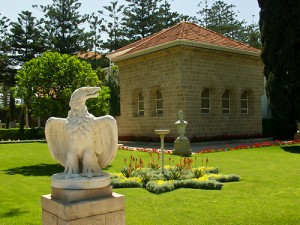Bahá’u’lláh, the Founder of the Bahá’í Faith, is recognized by millions throughout the world as the Messenger of God for this age. Born in 1817 to a prominent family in Iran, He showed from childhood an unusual intellectual and spiritual precocity, although unschooled in the kind of learning prevalent in 19th century Iran. He demonstrated, too, a particular devotion to relief of the condition of the poor. His given name was Mírza Husayn ‘Alí, but He identified Himself as Bahá’u’lláh, which means “Glory of God,” a title by which He was addressed by His Forerunner, the Báb. Because of His teachings, He was banished into an exile, eventually lasting forty years, that took Him to the Holy Land. It was there that He passed away in 1892.
The central theme of Bahá’u’lláh’s message is that humanity is one single race and that the day has come for humanity’s unification into one global society. While reaffirming the core ethical principles common to all religions, Bahá’u’lláh also revealed new laws and teachings to lay the foundations of a global civilization.
“A new life,” Bahá’u’lláh declared, “is, in this age, stirring within all the peoples of the earth.”
The resting place of Bahá’u’lláh in the Holy Land.

